Reviews
David Nerlich & Andrew Traucki
Australia, 2007
Credits
Review by Jonathan Foltz
Posted on 25 October 2011
Source Netflix VOD
Categories 31 Days of Horror VIII
Realism is a profoundly chimerical idea, especially in horror films. In the world of modern horror, “realistic” can take on any number of perverse and unaccustomed meanings: describing the quality of a film’s gore - its obsessive commitment to the consistency of blood and tissue - or the plausibility of a character’s behavior when put in danger (if the protagonist triumphs too glibly or too heroically, the result is camp: only injury, suffering and panic now seem convincing). There is a magical thinking to horror’s twisted realism. Perhaps it is that the more finely a movie scrutinizes the grim materiality of death and pain, the more it allows us to believe that we will live forever. Even films - like David Nerlich & Andrew Traucki’s Black Water - that claim to bend the gory trappings of horror towards the more sanctioned zones of the psychological thriller are frequently caught in its whirlpool logic of macabre authenticity. An ostensibly earnest, meditative, and character-driven film, with sparse dialogue and a visual style lyrically attuned to the mystery and quiet dread of nature, Black Water would seem to be to killer crocodile movies what Meek’s Cutoff is to the western - except that it isn’t, really. When the sanctimonious façade is withdrawn in the final act, the film fulfills all the bloody expectations it had previously succeeded in holding at bay. The result is a kind of pseudo-minimalism: an effective, atmospheric film that is also conflicted by its desire for a bloody climax.
In a way, this longing for climax is on display from the very first images of the film, which give us only a moody long-take floating through a shadowy mangrove sea, where the killer crocodile - here aligned with the camera itself - lies in wait for a victim. From this perspective, it is only a matter of time before he finds it. Meanwhile, our protagonist, the twenty-two year old Lee, is just setting off on a vacation with her older sister, Grace, and Grace’s husband, Adam. “I want to see that crocodile place!” she exclaims, not three minutes into the film: giving the coming disaster an air of inevitability. Lee is still an innocent (“She’ll always be my baby,” coos Mother, as the trio pile into the car), but she is clearly impatient with her youth and curious about the mysteries of adulthood. When Grace declines a drink at the pub, Lee correctly discerns that she is pregnant: the wide-eyed look on her face when her suspicion is confirmed shows that she is gleeful with knowledge, and hungry for more. This double awareness is nicely suggested by an early close-up of Lee toying with an insect in her mother’s garden that has become turned on its back. With her childlike understanding of helplessness and fascination with power, we know full well that Lee will soon be switching places with that bug—held at the mercy of a predatory world it seems doubtful she will survive.
Soon, Lee and company are off on a tour of a crocodile farm, where they join a host of other tourists tittering gleefully at the caged beasts. It’s all in good fun until the next morning, when Adam suggests that they take an ill-considered trip on one of “Backwater Barry’s River Tours.” A few short minutes later their well-meaning guide has been devoured, and Lee, Grace and Adam find themselves stranded in a sea of mangrove trees, held captive by a relentless crocodile. Perched in their skeletal tree, the group becomes tragically indecisive, paralyzed by self-doubt as to what to do: should they try to swim for the capsized boat, and risk another attack? Should they wait for rescue? Or should they try stumbling from tree to tree in hopes of finding their way to land? (The idea of trying to reach the boat by climbing the trees doesn’t occur until much later in the film—not that it would do any good). “Maybe it’s gone, but maybe it hasn’t!” is a typically self-defeating observation. At one point, Adam recounts a story that is designed to give Lee and Grace some hope that they might make it to the boat without harm. “It wasn’t my brother keeping me in the cupboard,” he triumphantly concludes, “it was me. It was fear!” But this too is a fiction that only leads Adam to believe that he’s up to the challenge of rescuing them—which of course he isn’t. The film in this way abandons the characters to themselves, using the threat of crocodile attacks to expose a claustrophobic wilderness of rippling water and knotted roots—typically peaceful icons of nature that are transformed here into zones of shadow, reflection, and anxiety.
For a film that relies so much on the relationships of its characters, Black Water spends a surprisingly short amount of time developing our sense of who they are. Indeed, much of what we do know comes from a wordless sequence of images that play over the film’s credits—vacation photos that Lee is reviewing on her digital camera. Situated as a subtle introduction to the characters, Lee’s camera is a window onto her sibling bonds. These pictures show the family cavorting at the beach, and in poses of playful warmth and candor under the Christmas tree: they are the sort of cutesy, endearing images that make our protagonists seemed equally charmed, which of course also lets us revel in the malevolent fate awaiting them. The characters in Black Water aren’t the shallow, self-absorbed types who usually find their comeuppance in horror films, but this doesn’t mean that they are more mature, and certainly not that they will fare better when faced with violence and injury. It only means that the ability to survive is predicated on a loss of innocence. Playful but also curiously lifeless, Lee’s pictures already seem like a post-mortem on a term of happiness and youth which the movie has little to no interest in exploring. Significantly, Lee is the first one to see the signs of the crocodile, though she does so accidentally, while looking through the lens of her camera. It is as though she calls it into being.
Black Water is most compelling in its moments of inaction, exhaustion and waiting. With precious few shots that actually show the crocodile, Black Water instead exploits visual suggestions that it is there (ripples in the water, floating corpses that disappear) to make us think that every moment is laden with the possibility of violence. This is both a budgetary consideration and a clear aesthetic commitment. Because the characters don’t know where or when the croc is going to strike, every movement they make is excruciatingly slowed down and extended, giving the entire film a delirious sense of ritualistic menace. Moments of prosaic activity - reaching underwater to grab at a piece of rope, moving from the boat to the tree and from the tree to the boat - take on an elongated, sinister character in the shadow of the film’s pervasive dread. All of these are part of the attempt to get out of the tree, but it’s pretty clear that none of their activity is doing them any good. Lee begins stranded on the boat, desperate to join Grace and Adam at the tree; but once she gets there, Adam begins thinking of ways to get back to the boat. The hopeless circularity of the obstacles in Black Water introduces a level of dark humor and futility to the film that is only occasionally punctuated by crocodile attacks.
The fact that the death-scenes in Black Water are not particularly frequent or gruesome is no argument against its power as a horror film. We do not watch for the spectacle of crocodile’s violent revenge. We watch to see how experience is transformed by the illicit knowledge that death is certain, to see how life is made slower and more desperate, and how the images of nature change their hue in the shadow of barely concealed panic. After Adam is attacked, his corpse floats head-down and bloated just next to the tree where Lee and Grace remain trapped—a lingering reminder. Later that night Lee and Grace are rehashing memories of childhood when they are reduced to silence by a gnashing sound—“He’s finally eating him,” Grace quickly observes. A little later - in one of the most effective shots of the film - we see a dark image of undulating and threatening water that zooms out to reveal a small corner of the river lapping gently against the trunk of a tree, unexpectedly green like crocodile skin framed by liquid night. Images like this seem to justify the slow pacing of the movie, which spends most of its time watching its characters sitting in a tree and staring disconsolately at an empty boat.
The film lets us have no illusions about their chances for escape. Their guide goes first, Adam second; Grace is soon crippled with a crocodile bite, leaving a panicked and self-destructive Lee to make a dash for the boat. All this lends the film the sense of inexorability of the children’s song that Adam sings early in the film:
Three cheeky monkeys, sitting in the tree,
Taunting Mr. Crocodile: “Can’t catch me!”
Along comes Mr. Crocodile, quiet as can be.
Snap!
Two cheeky monkeys…
The movie’s final twist - which features a mud-covered, gun-wielding Lee baiting the croc with a severed arm - feels unexpected and satisfying in the moment, but in retrospect threatens to make the rest of the movie seem insubstantial. Otherwise restrained and deliberate in its vision, it is as though Black Water is impatient to get to the end it feels it has to deliver. This doesn’t mean it isn’t fun to see that damned croc get what’s coming to him!
More 31 Days of Horror VIII
-

Westworld
1973 -
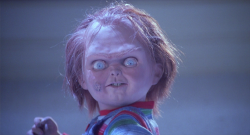
Child’s Play
1988 -
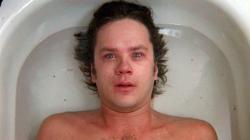
Jacob’s Ladder
1990 -
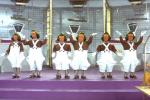
Willy Wonka and the Chocolate Factory
1971 -
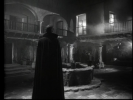
El Vampiro
1957 -
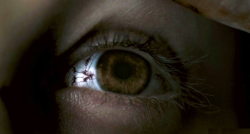
28 Weeks Later
2007 -
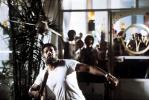
Piranha II: The Spawning
1981 -
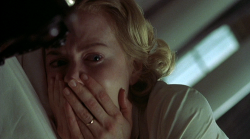
The Others
2001 -
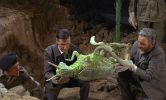
Quatermass and the Pit
1967 -

I Know Who Killed Me
2007 -

Bride of Re-Animator
1990 -
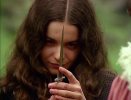
Alucarda
1978 -
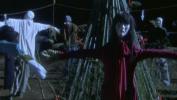
Kakashi
2001 -

Seizure
1974 -
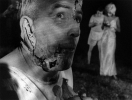
Night of the Living Dead
1968 -
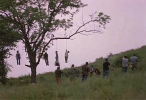
Night of the Living Dead
1990 -
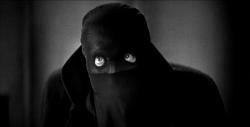
The Bat Whispers
1930 -

Miracle Mile
1988 -

Tintorera
1977 -
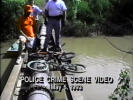
Paradise Lost
1996 -
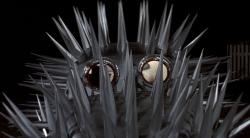
The Cars that Ate Paris
1974 -

Ginger Snaps
2000 -
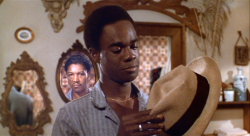
J.D.’s Revenge
1976 -
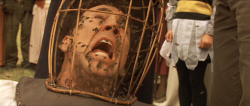
The Wicker Man
2006 -
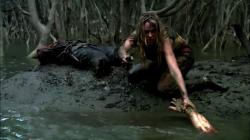
Black Water
2007 -
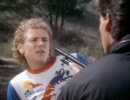
Don’t Panic
1988 -
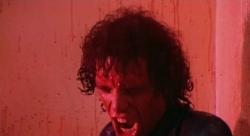
The Driller Killer
1979 -

Targets
1968 -

Mahal
1949 -
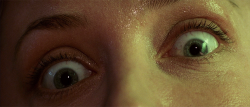
Event Horizon
1997
We don’t do comments anymore, but you may contact us here or find us on Twitter or Facebook.



